We have produced a Photobook of our children Fionn (Age 4) and Niamh (Age 2) having their eyes tested. Parents can take a copy home and read it with their children prior to their eye examination.This helps illustrate to children what they can anticipate, thereby reducing some of the uncertainty associated with attending for an eye exam.
If you would like to take a copy home, please just ask us when you book their appointment.
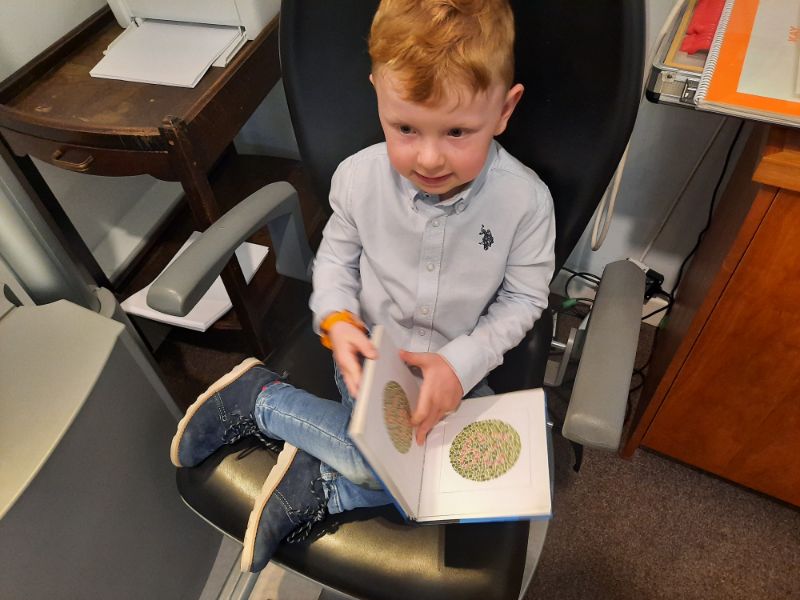
Many of us know the importance of regular dentist check-ups but not many parents appreciate the value of regular eye examinations.
The eye is still developing throughout early childhood and therefore if problems are detected and treated early, they have a lasting effect.
Good eyesight is crucial to ensure children develop to their full potential both at school and socially.
The short answer is you may not; some Eye conditions do not display any signs or symptoms and the only way to know for sure is to take your child for an eye examination.
Signs that may indicate a problem with a child’s sight include:
Certain conditions can run in families. If there is a family history of squint (turn in the eye), spectacles from a young age or wearing a patch over one or two eyes it would be advisable to have your child’s eyes tested.
Research has shown that approximately 20% of school-aged children have an undiagnosed vision problem.
UK National Screening Committee recommends screening at age four to five years; however, it is never too early for your child to have an eye exam as these recommendations are for asymptomatic children with no known family history of Eye problems.
Many parents are concerned that we will not be able to adequately assess their children until they know their letters, but there are many tests we can do to assess vision and spectacle prescription long before this stage of development.
We are experienced in testing all age groups including infants, school age children and teenagers.
(1) Data from Professor David Thomson, City University, London.
All children under the age of 16 and under 19 in Full-time education are entitled to a free eye examination under the NHS. If they need spectacles, they will also be given a voucher which in many cases will cover the complete cost of spectacles. Under 16’s are also given replacement/repair vouchers if their spectacles are broken or lost. We offer 2nd pairs of spectacles at a discounted rate and many parents avail of this opportunity to have a spare pair for their children.
If we detect any underlying conditions which require referral to the Hospital Eye Service, we will explain this to you and ensure you are aware of why we are making the referral.
Our (willing) models show how easy it is to have an eye test.
[Fionn and Niamh are our children and the photos show them having their eyes examined by their father Séamus.]
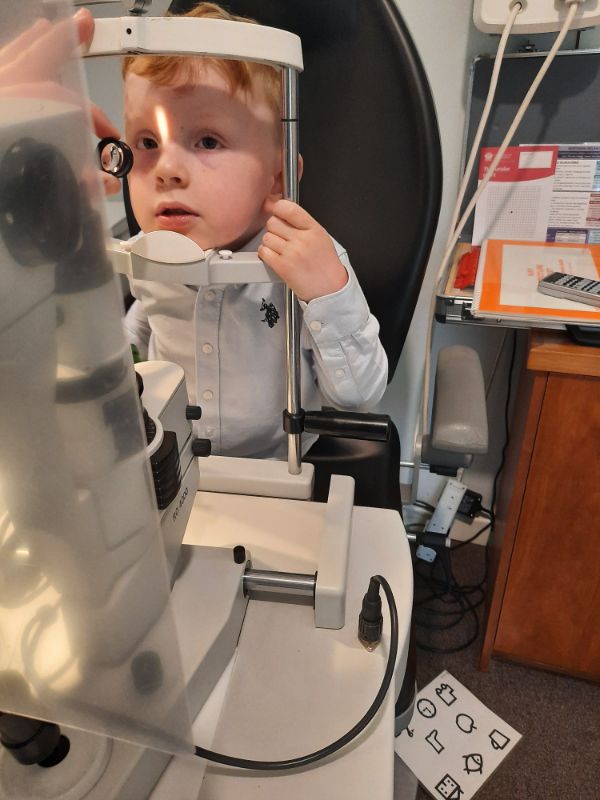
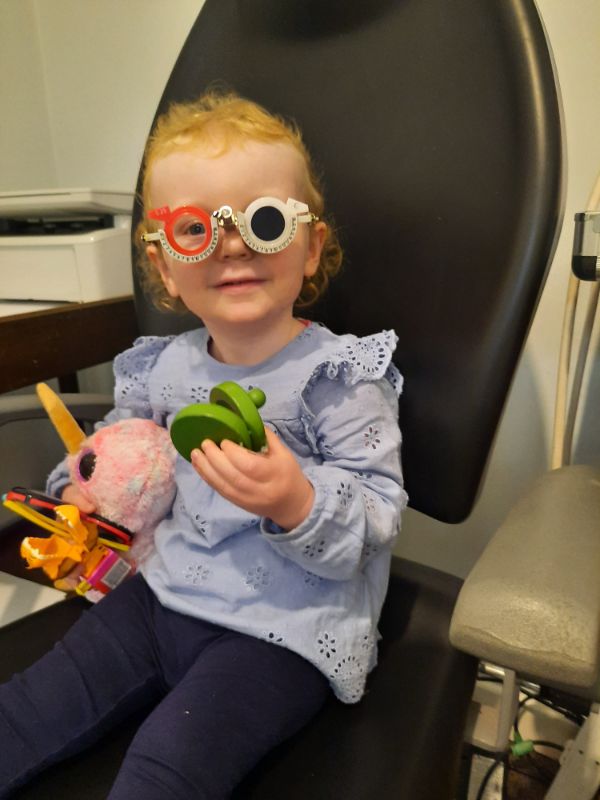
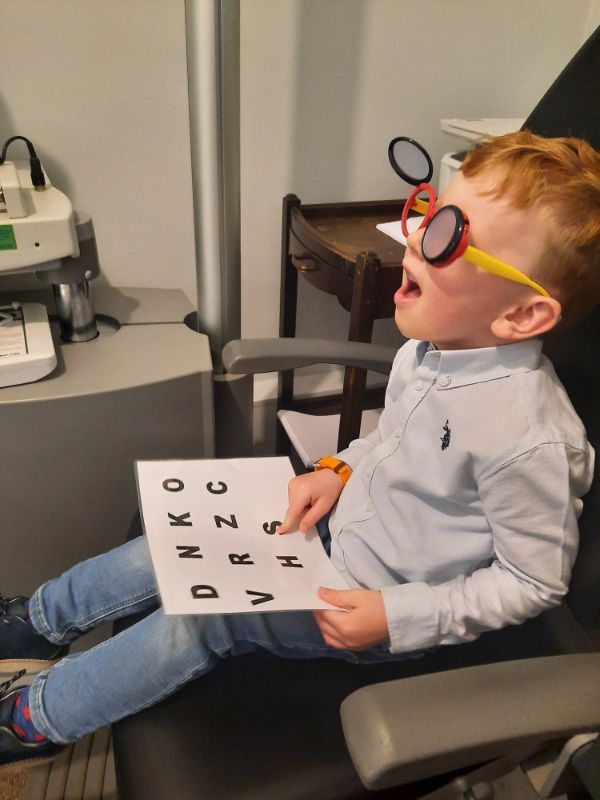
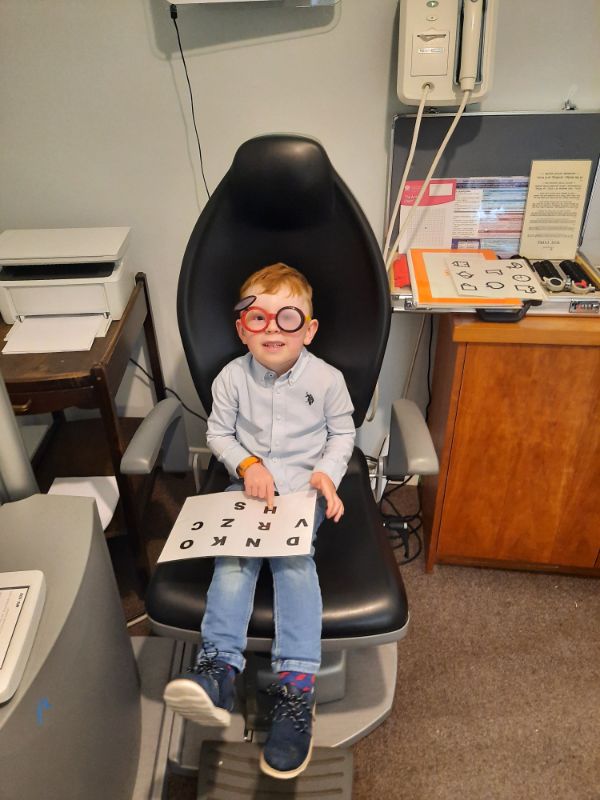
Fionn playing "snap" with the letters. This allows Séamus to assess how well Fionn can see.
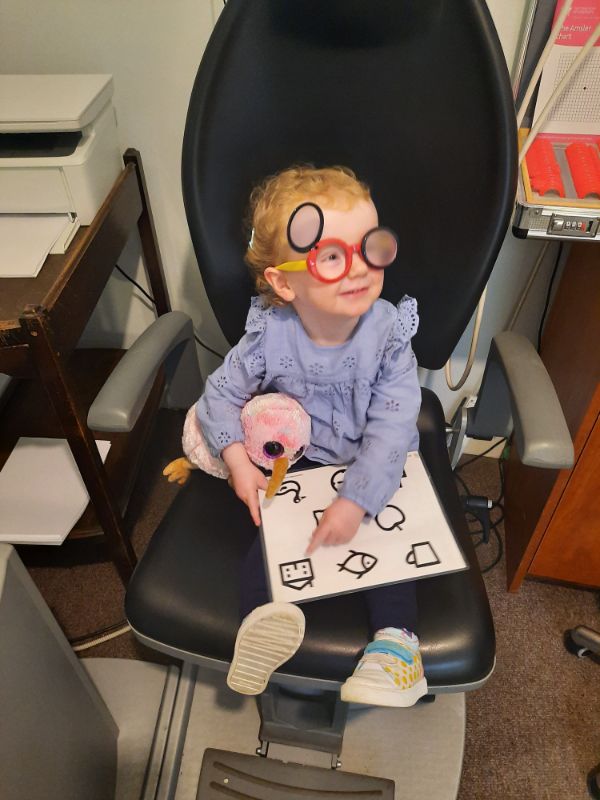
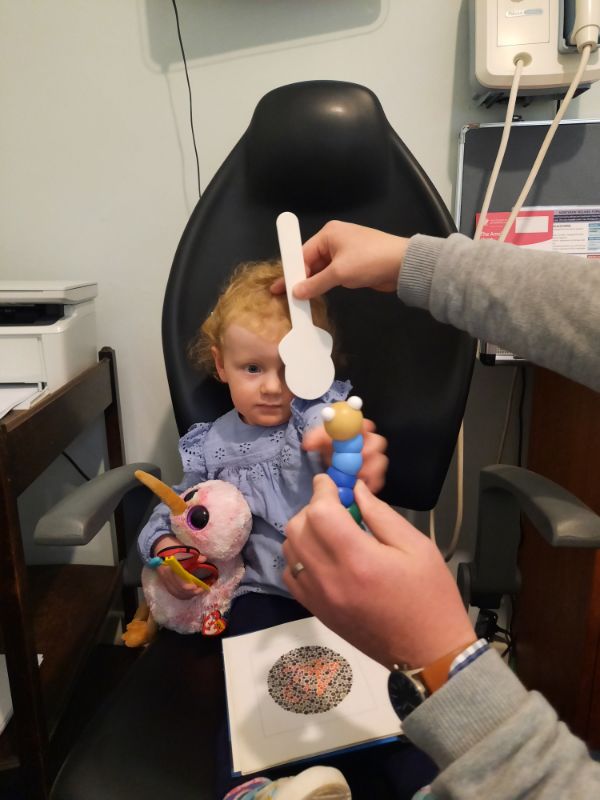
Niamh also played "snap" but she used pictures instead of letters.
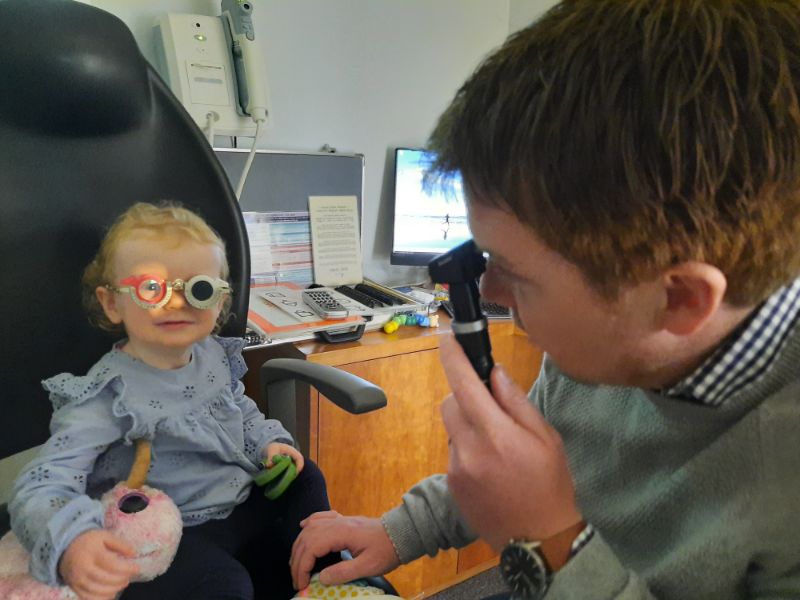
Séamus shines the light into Niamh's eyes and places lenses into the funny glasses to check whether she needs glasses or not.
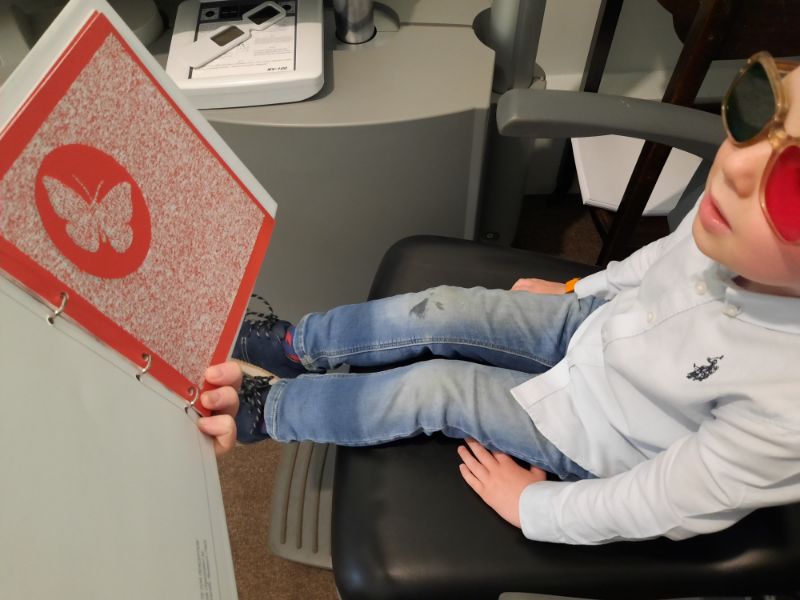
Fionn told Séamus how many butterflies he could see.
In our humble opinion, this is the best bit!
We stock a large range of childrens frames to ensure each child can have spectacles that suit both their optical needs and their individual styles!
If you've had an accident and broken your glasses, please call into the practice. Many repairs can be completed on the day, we also offer a one day glazing service that will ensure you aren't inconvenienced for long.
Masterson Opticians
2025 | All Rights Reserved |
Privacy Policy | Built by